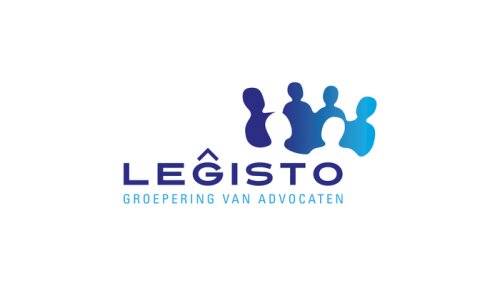Best Native People Lawyers in Belgium
Share your needs with us, get contacted by law firms.
Free. Takes 2 min.
Or refine your search by selecting a city:
List of the best lawyers in Belgium
About Native People Law in Belgium
In Belgium, the term "Native People" generally refers to those individuals who are indigenous to a particular region or connected to specific cultural and historical traditions within the country. However, Belgium's history is primarily shaped by various European cultures, and the concept of Native or Indigenous peoples as understood in other contexts, such as in the Americas or Australia, is not directly applicable. Belgium focuses on protecting the rights of minorities and cultural groups, including the Flemish, Walloon, and the German-speaking community. Legal matters related to these groups can involve cultural heritage protection, language rights, and cultural identity.
Why You May Need a Lawyer
There are several reasons why individuals might seek legal assistance in matters concerning Native People or culturally linked groups in Belgium:
- Cultural Heritage Protection: Ensuring that landmarks, traditions, or languages are legally recognized and preserved.
- Discrimination or Bias: Addressing issues of discrimination or unequal treatment based on cultural affiliation.
- Land and Property Rights: Handling disputes or negotiations regarding land or properties tied to cultural heritage.
- Legal Recognition: Obtaining legal recognition for cultural practices or traditional ceremonies.
- Environmental Protections: Advocating for the protection of natural sites that have cultural significance.
Local Laws Overview
Belgian law encompasses various regulations that impact cultural and linguistic communities:
- Cultural Autonomy: Belgium has regions with significant autonomy, allowing them self-governance in cultural matters.
- Language Rights: The country recognizes three official languages: Dutch, French, and German, with laws protecting the linguistic rights of communities.
- Anti-Discrimination Regulations: Strict laws exist to combat discrimination, ensuring equality regardless of cultural or regional association.
- Cultural Property Laws: Regulations exist to preserve and protect cultural heritage, including intangible elements like traditional crafts.
Frequently Asked Questions
1. Are there recognized Native Peoples in Belgium?
No, Belgium does not have formally recognized Native Peoples in the same way countries with colonial history might. The focus is instead on protecting regional and linguistic minorities.
2. What is the relevance of language laws in Belgium?
Language laws are crucial for protecting the cultural identity and rights of Belgium’s regional linguistic communities. They affect education, administration, and judicial matters.
3. Can cultural heritage sites be legally protected?
Yes, Belgium has laws to protect sites and artifacts of cultural importance, ensuring their preservation for future generations.
4. How can I report discrimination based on cultural background?
You can report such discrimination to Unia, the independent public institution combating discrimination and promoting equal opportunities in Belgium.
5. Is there a legal framework for cultural autonomy in Belgium?
Yes, the Belgian Constitution and regional laws provide frameworks facilitating cultural autonomy, particularly in regions like Flanders, Wallonia, and the Brussels-Capital Region.
6. What legal avenues exist for reclaiming traditional lands?
While Belgium's historical context differs from regions with indigenous land claims, legal processes exist for disputing property based on heritage claims, typically through national courts.
7. Are traditional practices protected by law?
Traditional practices can be protected under cultural laws, provided they do not infringe on other statutory regulations or public safety standards.
8. How does international law apply to cultural groups in Belgium?
Belgium is subject to European Union laws and international treaties that protect cultural rights, such as those outlined in the UNESCO conventions.
9. Where can I find information on cultural heritage sites?
The Ministry of Culture and regional authorities publish registries and documentation of recognized cultural heritage sites and practices.
10. Can non-Belgians claim rights as part of a cultural community?
Non-Belgians can be recognized as part of a cultural community; however, legal rights and protections may vary based on residency status and integration within the community.
Additional Resources
For additional support and information, consider reaching out to the following resources:
- Unia: The Interfederal Centre for Equal Opportunities, providing support against discrimination.
- Regional Cultural Authorities: Engage with local cultural ministries or organizations for community-specific support.
- Ministry of Culture: Overseeing cultural heritage regulations and protections.
- Legal Aid Bureaus: Offer assistance if you cannot afford a lawyer.
Next Steps
If you believe you need legal assistance regarding Native People or cultural matters in Belgium, start by identifying the specific issue you face. Document any incidents or evidence that support your case. Consider consulting with a lawyer specializing in cultural or discrimination law to guide you through the legal options available. You can also contact local organizations or advocacy groups that support cultural rights for advice and potential representation. Accessing governmental resources or contacting cultural heritage offices can also provide valuable guidance.
Lawzana helps you find the best lawyers and law firms in Belgium through a curated and pre-screened list of qualified legal professionals. Our platform offers rankings and detailed profiles of attorneys and law firms, allowing you to compare based on practice areas, including Native People, experience, and client feedback.
Each profile includes a description of the firm's areas of practice, client reviews, team members and partners, year of establishment, spoken languages, office locations, contact information, social media presence, and any published articles or resources. Most firms on our platform speak English and are experienced in both local and international legal matters.
Get a quote from top-rated law firms in Belgium — quickly, securely, and without unnecessary hassle.
Disclaimer:
The information provided on this page is for general informational purposes only and does not constitute legal advice. While we strive to ensure the accuracy and relevance of the content, legal information may change over time, and interpretations of the law can vary. You should always consult with a qualified legal professional for advice specific to your situation.
We disclaim all liability for actions taken or not taken based on the content of this page. If you believe any information is incorrect or outdated, please contact us, and we will review and update it where appropriate.
Browse native people law firms by city in Belgium
Refine your search by selecting a city.













